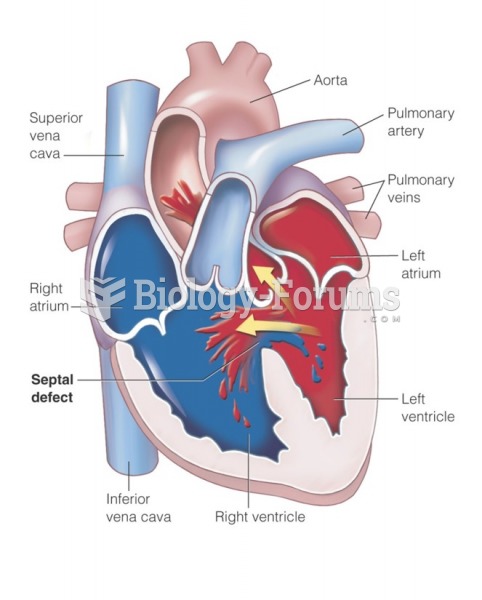Definition for Ventricular septal defect
From Biology Forums Dictionary
Ventricular septal defect describes one or more holes in the wall that separates the right and left ventricles of the heart. Ventricular septal defect is one of the most common congenital (present from birth) heart defects. It may occur by itself or with other congenital diseases.
Causes, incidence, and risk factors
Before a baby is born, the right and left ventricles of its heart are not separate. As the fetus grows, a wall forms to separate these two ventricles. If the wall does not completely form, a hole remains. This hole is known as a ventricular septal defect, or a VSD.
Ventricular septal defect is one of the most common congenital heart defects. The baby may have no symptoms, and the hole can eventually close as the wall continues to grow after birth. If the hole is large, too much blood will be pumped to the lungs, leading to heart failure.
The cause of VSD is not yet known. This defect often occurs along with other congenital heart defects.
In adults, ventricular septal defects are a rare but serious complication of heart attacks. These holes do not result from a birth defect.



